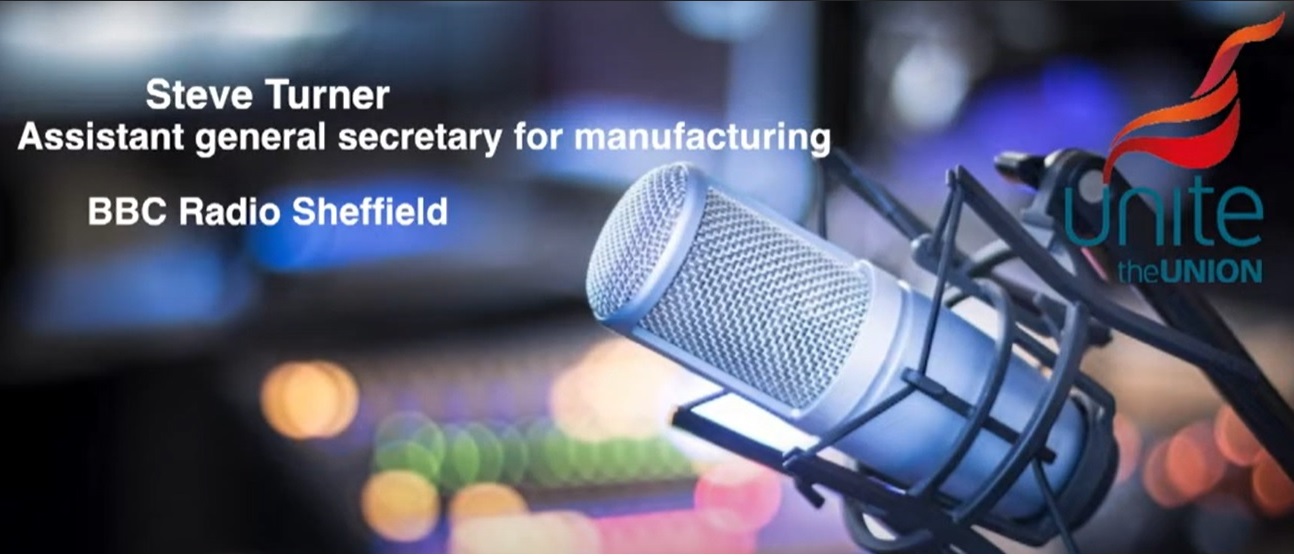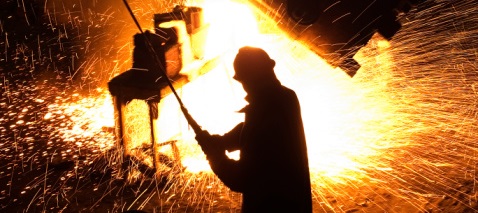Don’t expect govt bail out
As the steel industry cries out for government support, business secretary Savid Javid told manufacturers yesterday (February 24) that it could not expect to be bailed out like the banks were in 2008 as the financial crisis descended.
Speaking at an EEF manufacturers’ conference, Javid addressed the steel industry crisis, saying, “People ask, â€you bailed out the banks, why not other industries?
“If banks go bust the impact there is an impact on the entire economy that every single person and business will feel,” he argued.
Javid noted that banks are systemically important to the economy and it “does not mean we should [bail out] every single other industry.”
This was the latest in a series of mixed messages from the government about what it will do to support a steel industry in crisis.
Job losses in the steel industry have now exceeded 5,000, as steel unions have taken their fight to both the UK government and the EU demanding urgent action.
But yesterday, Javid noted that “we have to recognise what government can do and what it can’t” in regards to the steel industry. He said the problems that are now plaguing the industry – cheap Chinese imports and falling global demand – are systemic problems that governments aren’t necessarily able to solve.
“Britain will never be successful and competitive [if we bail out] industries which have systemic problems,” he told the conference.
Unite assistant general secretary Tony Burke railed against Javid’s comments, highlighting just how important steel is to the economy and just how little the government has done to support it.
Outrage
“Steel is a foundation industry – it’s built into virtually everything and is vitally important to our economy,” Burke noted. “It is an outrage that the business secretary has said he’s done all he can for the industry when other countries in Europe such as Germany are doing much, much more to support their own industries.”
Unite steel rep from Scunthorpe Charlotte Upton agreed.
“It’s incredibly naïve of the business secretary to say that steel is not systemically important to the economy, when so many communities – from Scunthorpe to Port Talbot to Redcar and more – are built around the steel industry,” she said. “Without steel, these communities’ economies will entirely collapse.
“More than that, our country wouldn’t be what it is today without industry,” Upton added. “Our entire nation is built on industries such as steel.”
Unite Wales area branch secretary and steelworker from Port Talbot, Mark Turner, criticised the business secretary for giving the financial sector precedence over steel and other heavy industries.
“What underpins banks’ wealth is industry itself,” he said. “If all our industry were to disappear the banks would be nothing.
“What’s more, all the thousands of high-skill, high-wage jobs in the steel industry create wealth – money in people’s pockets means money spent in local communities that then stimulates the wider economy,” Turner added. “When this employment is gone, the government also loses out on millions in income tax receipts which further destabilises the economy.
Burke criticised the government’s relationship with banks.
“The government essentially handed the banks a get out of jail free card,” he said. “Since 2008, they’ve continued with much of the same reckless behaviour that caused the financial crisis in the first place and the message the government has sent to the banks is, basically – don’t worry, you can carry on as you are and we’ll bail you out again.”
â€Beholden to the City’
“It just proves that this government is completely beholden to the City and services while it’s doing nothing to create an industrial strategy to support manufacturing,” he said. “It’s a recipe for economic disaster.”
Turner explained how relying on imported steel would also be disastrous for the economy.
“If we allow our steel industry to collapse, this would mean we would become completely dependent on imported steel, which is a very dangerous move that poses a risk to our national security,” Turner noted.
“Without a procurement strategy – public but also private – who’s to say that at some point China and Russia and other steel exporters won’t join up to become a conglomerate and then they’d have total control over the price of steel? We would become completely beholden to them.”
While Unite has long criticised the government for its inaction, Javid bafflingly noted at the EEF conference that the government has “effectively ticked off” all four of the five measures the steel industry and unions have asked for.
These five â€asks’ have included reducing green levies that hike steel firms’ energy bills; imposing higher tariffs on cheap imports from China and other countries; encouraging a procurement strategy so that all public infrastructure projects are made with British steel; and relief on emissions limits as well as tax relief.
Javid argued that he had granted all five requests except changing the tax regime.
Upton – who has been at the centre of steel trade unions’ Save Our Steel campaign – said that the government has only promised to take action but steel communities have so far felt no relief.
Lip service
“We’ve seen absolutely no evidence that the government has done what it says it will do,” she noted. “All we’ve seen is the business secretary and the prime minister constantly paying only lip service to the action they will take.”
Turner agreed.
“It is absolutely untrue that the government has done all it can for steel – only recently it blocked EU proposals to hike tariffs on Chinese steel above the 9 per cent where it currently stands,” he said.
“That’s nowhere near where it needs to be to combat dumping of cheap steel imports.”
Although the government has stalled on taking action, Burke remained hopeful that continued pressure would work.
“There’s still a long way for the government to go so that’s why it is essential that we continue putting on the pressure,” he said, pointing to an upcoming opposition day debate that will again bring up the actions the government must take to support the industry.
“It’s hard not to feel hopeless at this stage but I urge everyone to continue the fight and wait and see.”
 Like
Like Follow
Follow


